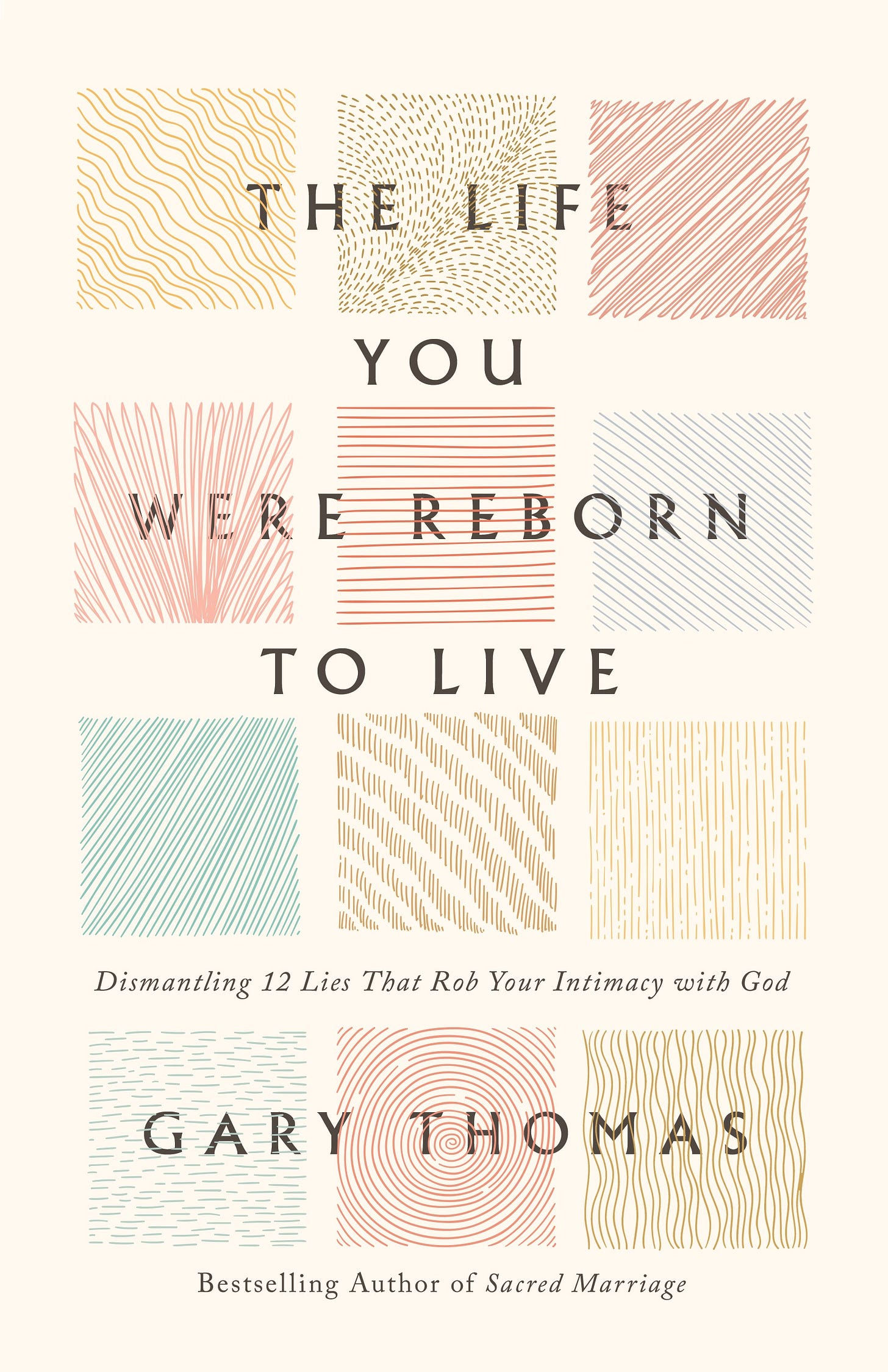Are You Running the Wrong Race?
To spiritually prosper, we must value what God values, in the order and priority with which God values it. One of the areas in which our culture disagrees with God as much as anything is the value of wisdom. Proverbs says that wisdom is worth more than gold or silver (3:13-15), but how many believers today spend more time thinking about becoming wiser than they do their retirement number?
Yet if we want to prosper and thrive in Christ, we have to stop conforming to the pattern of this age (which values money over wisdom), but be transformed by the renewing of our minds (Romans 12:2).
I want to spend a few weeks excerpting from The Life You Were Reborn to Live. This is from the last chapter, and since it’s the last, I haven’t had any podcasters ask me about it or bring it up much, but I believe it is crucial.
I wanted to qualify for the Boston marathon about as much as I have ever wanted to do anything in my life. When I hit my mid-forties, I figured it was time, so I lost weight; I ran speed workouts. I ran long distances, which in the Pacific Northwest sometimes meant running two hours in non-stop rain. I failed to run a fast enough qualifier in my first three attempts but finally got to the place in my fitness where I thought, I should be able to do this.
During my fourth marathon I hit mile twenty-five with sixteen minutes to spare. Sixteen minutes to run one mile (I had been averaging 7:45 miles) and I was in! I started to get dizzy—really dizzy—and non-stop pleaded with God, “Please don’t let me pass out. I’m almost there!”
I crossed the line in 3:22—8 minutes to spare—and saw my name listed on the finisher’s sheet with the coveted “BQ” (Boston Qualifier) listed next to it.
And then the race director shattered our hearts when he said, “I guarantee you that the course is 26.2 miles, but we had to make some last-minute changes to the course to accommodate road improvements. While I am one-hundred percent confident of the course’s length, we didn’t have time to get a proper legal verification, so our marathon can’t be used as a Boston qualifier this year.”
I had done the work. I had suffered the pain. I had run the race. But it was all for naught because I ran the wrong course. Fortunately, I repeated the effort in the Seattle marathon a few months later and qualified that way, but what if I hadn’t? I invested so much effort and time and endured a lot of pain, but if you don’t run a verified course, none of that matters to the Boston officials.
What life goals have you given much effort, energy and attention to? A certain kind of family? A certain academic or vocational achievement? What if, at the end of your life, you find out that you ran the “wrong” race? You neglected to run the course that counted, that really mattered?
King Solomon warned that many people are putting in a lot of effort in life; they are chasing many goals, sacrificing and working and pursuing with all diligence, but at the end of their life they are going to discover that they have run the wrong race. I had invested many months, actually years, in my pursuit. But what if at the end of your life you realized you had spent decades pursuing a lesser thing?
The pursuit of an ever-increasing wisdom is supremely valued in Scripture. We need to dismantle our complacency about being wise enough as we are, and learn the need to pursue more wisdom every day. There’s a reason this is the last chapter in the book (besides the Epilogue): it solidifies and reinforces the dismantling and relearning process we’ve been talking about all along.
Solomon’s Secret to Success
“The beginning of wisdom is this: Get wisdom. Though it cost all you have, get understanding. Cherish her, and she will exalt you; embrace her, and she will honor you. She will give you a garland to grace your head and present you with a glorious crown.” Proverbs 4:7-9
Solomon is saying that if our lives aren’t marked by a thirsty, never-ending pursuit for more wisdom and understanding, we are running the wrong course. And the very beginning of wisdom and understanding (next to fearing God[1]) is wanting earnestly to be wiser and more understanding than we already are. Even if we’re wiser today than we were five years ago, we should seek to be wiser yet five years from today.
The truth is, most of us don’t earnestly pursue wisdom because we’re comfortable with where we are at. We think we know enough. We’re getting by with what we have, and there are so many other more compelling pursuits that capture our imagination. We need to shun this complacency—that the wisdom we possess is sufficient—and learn instead to be thirsty and willing to work and sacrifice to obtain even more of this supremely valuable spiritual treasure.
If we don’t earnestly pursue wisdom, we won’t get wiser, because it doesn’t come by accident. There’s a price to be paid: “Though it cost all you have, get understanding.” Add up everything else you own, and it’s not as useful or worthwhile to you as wisdom.
John Bevere has a powerful analogy in this regard: “If someone told you there were ten million dollars hidden somewhere in your home, you would search for it non-stop until you found the hidden fortune. If need be, you would pull up carpets, rip open dry wall, and even tear the house down to the foundation in order to find that much money.”[i] That’s the kind of determination we should pursue to find wisdom; if we knew how valuable it is, we wouldn’t stop tearing our lives and schedules apart to get it.
Wisdom is more important than your house, your car, your wardrobe, or your retirement account. “How much better to get wisdom than gold, to get insight rather than silver!”[2]
Getting such wisdom may cost you some sleep.
It will definitely cost you some screen time.
It may feel like work.
But Solomon promises that wisdom will exalt everyone who cherishes her and honor everyone who embraces her.
In fact, wisdom is so powerful a possession that pursuing it is considered an act of self-love: “To acquire wisdom is to love yourself; people who cherish understanding will prosper” [3].
*Affiliate link in post.*
[1] Prov. 9:10
[2] The New International Version. (2011). (Pr 16:16). Grand Rapids, MI: Zondervan.
[3] Tyndale House Publishers. (2013). Holy Bible: New Living Translation (Pr 19:8). Carol Stream, IL: Tyndale House Publishers.
[i] John Bevere, The Fear of the Lord: Discover the Key to Intimately Knowing God (Lake Mary, FL: Charisma House, 1997), pg. 124.




I struggle a bit to understand what 'wisdom' is biblically - it's more than head knowledge and it's more than just what you learn from experience. For the Christian it's obviously linked to our relationship with God, our knowledge and application of His Word and what we gain from being in a healthy prayerful church community. I've known some people who I would describe as wise and they seemed to have a mix of maturity, discernment, and depth with God - anyone want to venture a definition of wisdom?
“Therefore, since we have so great a cloud of witnesses surrounding us, let us also lay aside every encumbrance and the sin which so easily entangles us, and let us run with endurance the race that is set before us,”
Hebrews 12:1 NASB1995